The views expressed in our content reflect individual perspectives and do not represent the authoritative views of the Baha'i Faith.
In the summer of 1977, I was 8-years old. Born in the last year of the previous decade, I entered the world in the aftermath of the titanic cultural shifts of the 1960s: the assassinations of Dr. Martin Luther King in 1968 and Malcolm X and Robert Kennedy in 1965; the passage of the Voting Rights Act in 1964; the anti-war movement; and the struggle for women’s rights.

These social upheavals reshaped the contours of our national identity as previously excluded groups demanded recognition and representation while aggrieved young people, disillusioned by the hypocrisy of the American mythology, pushed the boundaries of personal freedoms. My generation was formed in the cauldron of these intense forces. We were the promise of a “new dawning” — the inheritors of the fruits of struggle.
Embodied in these acts of heroism is this moving statement from Abdu’l-Baha, the son of Baha’u’llah, the prophet and founder of the Baha’i Faith. He said, “Only have faith, patience and courage — this is but the beginning, but surely you will succeed, for God is with you!”
We stared into a changing world that for some, seemed boundless and measureless — aspirational hope that is, regrettably, complicated by race, for the black child lives in a state of inherent contradiction. Black children are trapped between the promise of future possibility — an endowment of all children — and the social stigma of their color. They exist at the meeting place of these two realities, at a nexus of perpetual tension. Learning to negotiate that space and ultimately to transcend it, is the inescapable dilemma of their blackness — an unjust inheritance for the “children of Ham.”
This was a lesson I had yet to learn in the summer of 1977 as my father and I took a road trip from one end of this vast country to the other.
We were heading west from our home in Miami to visit relatives in California. My great grandparents were the first in the family to leave their home in Texas during the great migration in the early 1900s, joining thousands of African Americans fleeing racial violence and seeking better employment opportunities west of the Mississippi River.
Eventually, other family members would join them, settling in Los Angeles, Oakland, and San Jose. My dad, always an enthusiastic advocate for the enduring bonds of family, wanted me to get to know our West Coast relatives — my summer vacation was the perfect opportunity. And so it was that I found myself tucked into the passenger seat of my dad’s blue and gray Cutlass, with a pile of comic books in my lap, straining to see over the dashboard, as we began the 10-day, nearly 3,000-mile journey across the country.
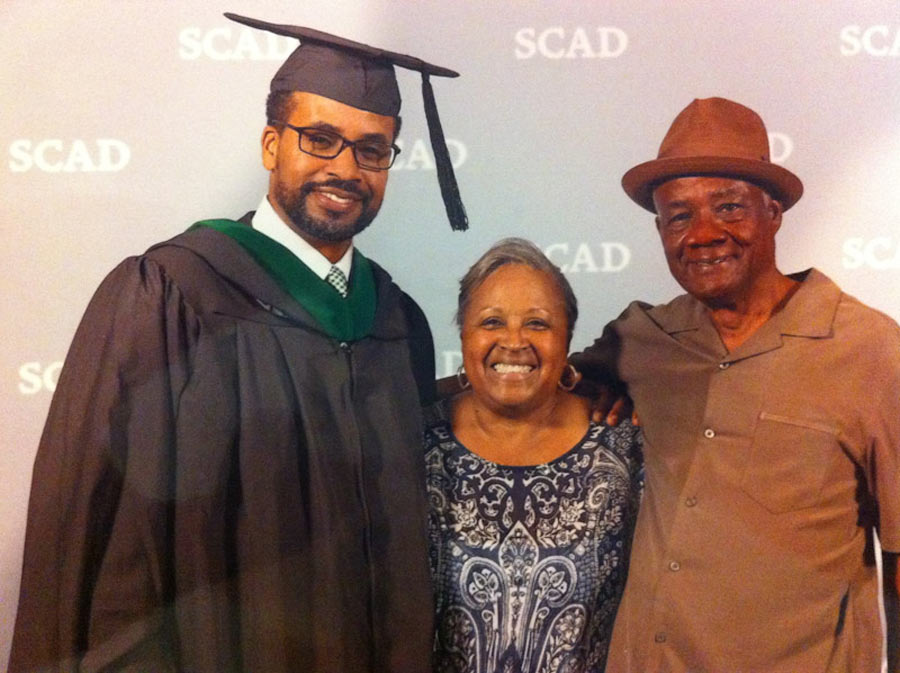
On our return trip home, after a memorable trip visiting family in Texas and California, we crossed the state line into Mississippi from Louisiana. Late one night, as dad guided the car down a dark country road near the city of Jackson— the canopy of trees casting long shadows across the body of the vehicle in the moonlight — he started to fall asleep. I would wake him each time he struggled to keep his eyes open until he finally decided we should pull over to get some sleep. We exited the interstate at the next rest area and parked near the public restrooms. Soon, we were both lost in our dreams with the metered sound of the cicada, our nocturnal lullaby. It was early the next morning when I felt the car shake.
Dad was still sleeping as I opened my eyes to see five or six white men standing around the front of the car pushing down on the hood to make the body of the vehicle rock violently. The men grinned at me, but there was no kindness in their eyes, only a sadistic pleasure that terrified me. “What are they doing daddy?” I cried. My father didn’t say anything, but there was a recognition in his eyes – a ‘knowing’ rooted in some distant memory passed down across generations of black folk accustomed to living at the precipice of possible annihilation.
“Daddy, I have to go to the bathroom,” I said. He flung the driver’s side door open and walked around to open my door, taking me by the hand as he led me towards the bathrooms a short walk away.
I don’t know why I was so afraid. I had heard vague stories of racial violence whispered among the adults in my family — painful echoes of the dead carried through the voices of their descendants — but they were only an abstraction to me. I didn’t know that Southern soil was made fertile not only by the spring rains but also the blood of my ancestors, or that black bodies once hung from Magnolia and old-growth oak trees like lifeless, sable ornaments.
We were just 92 miles from the small city of Meridian, Mississippi where two 14-year-old boys were lynched in 1942, and just 73 miles from Pearl River County. In 1959, the lifeless body of Mac Charles Parker was thrown into the local river after being beaten to death by a white mob. And right there in Hattiesburg, perhaps not far from where my father and I had paused for rest, the George Stevenson lynching occurred in 1890.
The legacy of racialized brutality was carved into the flesh of the landscape. But in 1977, I didn’t know these things. All I knew was that my dad and I were about to confront white men in Mississippi, and I was scared.
I can’t remember if I prayed through my fear that day. I can’t remember what my dad said as we walked through the threatening group of young men as they parted, to clear a path towards the public restrooms. What I do remember is that after a brief standoff, it was over. The group moved on and dad and I were soon back on the road heading east towards Florida.
Many years later I asked my father what he was feeling at that moment. “Afraid,” he said. I remember being confused by his answer. He didn’t look scared as we walked past those men. There was nothing in his body language that communicated fear. There was no halting motion in his gait or slouching posture in the way he carried himself. He walked right up to them, an act which, looking back on it now, must have stunned our antagonists who were probably expecting a very different response. His demeanor reminded me of a powerful statement by Dr. Martin Luther King: “Whenever men and women straighten their backs up, they are going somewhere, because a man can’t ride your back unless it is bent”
But now, some 40 years later, I understand what my dad meant. You see, my father, born in segregated Texas in the 1940s, grew up in a time when the practice of public lynching was seen by many in the deep South, as an indispensable method for enforcing racial hierarchies. For him, it wasn’t an abstraction. It was real.
When my dad stepped out of the car that day, in a very real sense, he was confronting the weight of history. He was staring into an abyss which he knew and understood in a far more profound way than I did, and there was no guarantee that either he or I would survive. It was a simple act of astounding courage, one repeated in subtle and overt ways by countless individuals who will never be written about in history books or interviewed on television, but who have made the conscious choice to stand up for justice.
More than a century ago Baha’u’llah wrote, “Members of the human race!… Cleave ye to justice and fairness…” He also wrote that “Whatever decreaseth fear increaseth courage.”
What my father taught me that day was that courage is the ability to move in spite of one’s fears — to press on in the face of adversity. When that quality is aligned with God’s purpose we can move mountains, cross rivers and seas, and face the ravenous jaws of bigotry and hate with the redemptive strength of faith and certitude.
You May Also Like
Comments



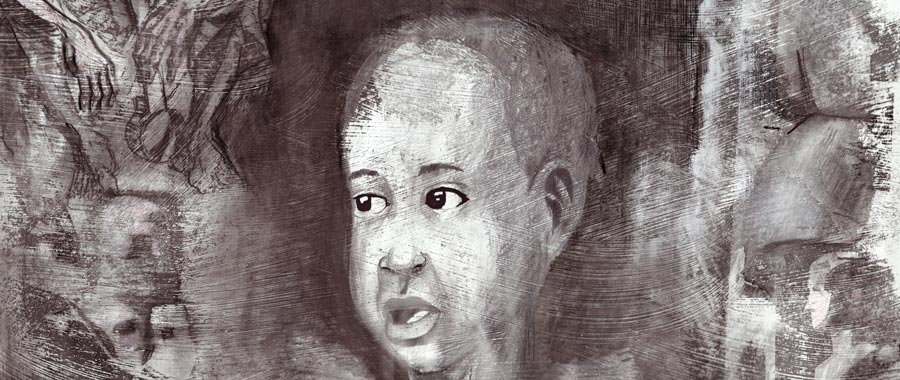
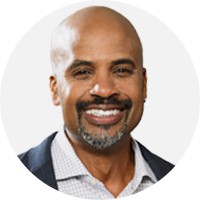
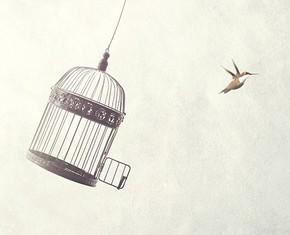
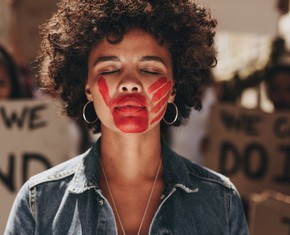










(evonomics.com/how-to-disguise-racism-and-oligarchy-use-the-language-of-economics/). Living overseas as an expatriate pioneer, I couldn't believe what I read and heard. I always thought: "Where did everyone from the 60s and 70s go?" I think the answer is: "They were outmaneuvered, and were not paying enough attention." God willing, this is finally going to ...change.
used to visit with an adult family member, rural West Dallas, where we played together in the late 40's, early 50's, did not bend his back!" What a great read, profoundly written from life's experience! I applaud you both.